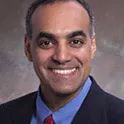Multidisciplinary Care
Dr. Sunil Singhal shares the medical community’s belief that the best approach to treat mesothelioma is a multidisciplinary approach. He offers each of his patients quality, multidisciplinary care.
Dr. Sunil Singhal strives to create new medical technology to better distinguish cancer cells and healthy cells in the body.
Innovative Research
In 2007, Dr. Singhal first began his thoracic surgery research program. Under his careful guidance, the laboratory worked to design new strategies to help treat mesothelioma and other cancers. He has been at the forefront of discovery in immunotherapy, molecular biology, gene therapy, and nanotechnology. Over the course of his career, Dr. Singhal has made innovative advancements in research, winning multiple grants and awards for his work.
Scholarly Work
Dr. Singhal has published 40 peer-reviewed research articles. Five of them show his expertise in the treatment and diagnosis of asbestos-related diseases. Dr. Singhal also reviews a number of publications, and he has co-written a textbook on thoracic surgery.
Clinical Trials
Back in 2011, Dr. Singhal and his research team won a $7 million five-year transformative research project award, which is the current source of his funding for clinical trials. Dr. Singhal strives to create new medical technology to better distinguish cancer cells and healthy cells in the body. He believes this research will ultimately revolutionize surgical and radiation oncology.

 Rae Steinbach
Rae Steinbach
 Lauren Weinand
Lauren Weinand